Originally published at: Poorest Countries in the World 2023 | GoVisaFree
- 10 Poorest Countries in the World
- Liberia
- Malawi
- Niger
- Democratic Republic of the Congo
- Sierre Leone
- Madagascar
- The Central African Republic
- Mozambique
- Somalia
- Burundi
- Factors Leading Up to Poverty in a Country
- Cases Where Countries Got Over Poverty
- Richest Countries in the World
- Poorest Countries in the World: The Wrap-Up
In a world where abundance is scarce; and opportunity is even scarcer, lies a group of nations that face extreme poverty on a daily basis. These nations, often forgotten and ignored, are home to people who must navigate through tough circumstances to survive.
The poorest countries are a testament to the tenacity and perseverance of the human spirit. The people here have learned to make the most of their meager resources and have developed a unique sense of resilience that is admirable. Whether it’s the busy streets of Maputo or the rolling hills of Haiti, the people of these countries have stories that will leave you in awe.
In this article, we’ll delve into the realities of the ten poorest countries in the world. We’ll examine the progress they’ve made and the challenges they face.
So, hold on tight and prepare for a journey that will give you a glimpse into the lives of those who face adversity every day.
10 Poorest Countries in the World
Poverty remains a persistent problem in many parts of the world, with some countries struggling more than others. In this list, we’ll explore the 10 poorest countries in the world based on their Gross Domestic Product (GDP) per capita.
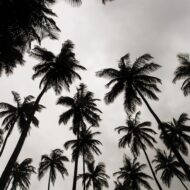
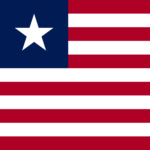 Liberia
Liberia
Liberia, situated on the coast of West Africa, has been identified as the world's tenth poorest nation.
Despite being blessed with abundant natural resources like timber, diamonds, and gold, a vast number of Liberians live in poverty. The obstacles they face in everyday life are many, including limited access to basic necessities such as healthcare, education, and clean water. Many families struggle to put food on the table due to the high cost of living, while the country is heavily reliant on foreign aid and loans.
One of the primary reasons behind Liberia’s poor state is its tumultuous history of civil wars and political instability. Between 1989 and 2003, the country was engulfed in two civil wars, which displaced over a million people and destroyed the infrastructure. The aftermath of these wars has left the country with a weak government, a poorly functioning economy, and a shortage of primary services.
Corruption, another significant contributor to Liberia’s poverty, is rife in both the public and private sectors. It has resulted in a lack of investment in infrastructure and social services, as well as hindering economic growth. Furthermore, the nation’s poor infrastructure and geographical location make it challenging to transport goods, resulting in limited market access and high transportation costs.

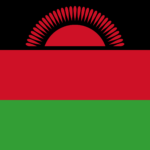 Malawi
Malawi
Malawi is one of the world's poorest countries, with over half its population living below the poverty line.
Access to basic necessities such as food, clean water, and healthcare remains a significant challenge for many Malawians. The country has a high infant mortality rate and suffers from a shortage of medical personnel, which exacerbates the healthcare crisis.
Agriculture is the primary source of income for most Malawians, but the sector faces numerous challenges, including unreliable rainfall, limited access to modern farming techniques, and a lack of infrastructure. This has led to low crop yields and food insecurity, making it difficult for families to put food on the table.
Malawi’s economy also suffers from a lack of diversification and heavy reliance on foreign aid. The country’s export market is dominated by tobacco, which accounts for nearly 60% of all export revenue. This overreliance on a single commodity leaves Malawi vulnerable to fluctuations in global prices, which can have devastating effects on the economy.
Political instability, corruption, and poor governance are other factors that contribute to Malawi’s poverty. These issues have hindered foreign investment, perpetuated a culture of cronyism, and hampered development efforts.

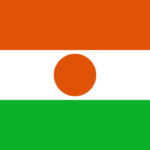 Niger
Niger
Niger is the eighth poorest country in the world, with its people facing significant challenges in accessing fundamental needs such as healthcare, education, and clean water.
The lack of access in Niger makes it difficult for the population to improve their living standards, and many Nigerien families struggle to put food on the table.
The cost of living in Niger is high, which makes it even more challenging for people to meet their basic needs. Despite having significant natural resources, the country’s economic growth has been hampered by political instability, poor governance, and corruption. The majority of the Nigerian population lives in rural areas, where poverty is most acute.
Moreover, frequent droughts, floods, and other natural disasters have severely affected the country’s agricultural output, which is the primary source of income for most of the population. This situation has exacerbated the already challenging living conditions in Niger.
To alleviate the poverty that has plagued Niger, there is a need for good governance, political stability, and investment in social services and infrastructure. Such investment could help unlock the country’s potential and create a pathway to sustainable growth and development.

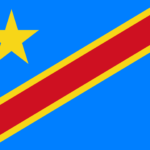 Democratic Republic of the Congo
Democratic Republic of the Congo
The Democratic Republic of Congo is the seventh poorest country in the world.
Democratic Republic of the Congo is a country that’s been through conflict for decades, with its people suffering from a lack of basic necessities, a high cost of living, and extreme poverty. The challenges faced by the Congolese people are numerous and daunting, with many living in abject poverty and struggling to meet their daily needs.
Limited access to fundamental needs such as healthcare, clean water, and education has caused a significant hindrance to improving the standard of living, adding to the challenge of living in the country. The cost of living is also relatively high, coupled with rampant corruption, have made it hard for many families to meet their basic needs, including having a meal on the table. To make matters worse, the country has been grappling with political instability, further impeding development efforts. As a result, the majority of the population is living below the poverty line, unable to attain even their most basic needs.
The Democratic Republic of Congo is rich in natural resources, but the exploitation of these resources has largely benefited foreign corporations and corrupt officials, rather than the Congolese people. The country’s history of conflict and violence has also deterred foreign investment, further exacerbating its economic woes.

 Sierre Leone
Sierre Leone
Sierra Leone, located in West Africa, is one of the poorest countries in the world.
Despite being prosperous in terms of natural resources, including diamonds, gold, and iron ore, poverty remains widespread, with more than 60% of the population living below the poverty line. Access to basic necessities such as healthcare, education, and clean water remains a significant challenge, particularly in rural areas where infrastructure is considerably limited.
Living expenses in Sierra Leone often go beyond the means of the average citizen, with exceptionally high prices for basic goods and services. The country has also been plagued by conflict and instability, further hindering economic development and increasing the rate of poverty.
Furthermore, Sierra Leone has been impacted by natural disasters such as floods, landslides, and mudslides, leading to the displacement of people and further straining limited resources. These disasters, coupled with ongoing challenges such as weak governance and corruption, have left the country struggling to address the needs of its population.
Efforts to address poverty and improve the country’s economic outlook are underway, including initiatives to strengthen governance, promote private-sector investment, and increase access to basic services. However, significant challenges remain, and progress has been slow, leaving many in Sierra Leone struggling to meet their basic needs.
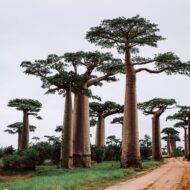
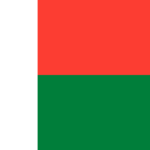 Madagascar
Madagascar
Madagascar, the fourth largest island globally, is also one of the poorest countries in the world, ranking fifth in global poverty.
Despite its abundant natural resources, including gemstones and minerals, the country faces significant economic, social, and environmental challenges.
Basic necessities like access to clean water, healthcare, and education are beyond the reach of most citizens, with over 80% of the population living below the poverty line. The country is prone to natural disasters such as cyclones, droughts, and floods, which pave the way for harsher poverty rates.
The cost of living is high, making it challenging for people to afford even the most basic requirements of food and shelter. The lack of job opportunities has led to widespread unemployment and underemployment, further worsening the poverty situation.
Political instability, corruption, and poor governance have hindered economic growth and development. The country’s infrastructure is inadequate, with poor road networks and inadequate transportation facilities making it challenging to move goods and people across the country.
Moreover, Madagascar’s natural resources are underutilized, and environmental degradation due to deforestation, mining, and illegal logging is rampant. The lack of sustainable environmental policies further exacerbates poverty, as it affects the livelihoods of the rural population, who rely on agriculture.
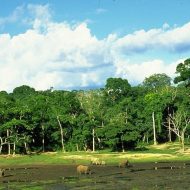
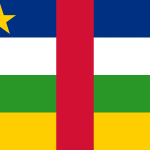 The Central African Republic
The Central African Republic
The Central African Republic is classified as the fourth poorest nation in the world despite the abundance of its natural resources such as uranium, gold, and diamonds.
The basic needs of the people, including healthcare, water, and food, are severely limited, with over 60% of the population lacking access to sanitary drinking water. The life expectancy rate in the country is one of the lowest globally, with many succumbing to preventable diseases like tuberculosis and malaria.
The cost of living is excessively high, rendering most people unable to afford even the most basic requirements of food and shelter. The lack of employment opportunities has further worsened the situation. Political instability on top of frequent conflicts has resulted in a massive loss of life and displacement of many.
The Central African Republic’s economic development is hampered by inadequate investment in crucial infrastructure such as transportation and communication networks, low levels of education and healthcare, and untapped agricultural potential. Most farmers rely on subsistence farming, further exacerbating the poverty situation.

 Mozambique
Mozambique
Mozambique, situated in southeastern Africa, holds the unenviable position of being the world's third poorest country.
Despite the abundance of natural resources, including coal, gas, and titanium in the country, Mozambicans continue to grapple with economic, social, and political challenges.
The most basic necessities, such as clean water, healthcare, and education, remain accessible to only a significant portion of the population. Over half of Mozambicans do not have access to clean water, and the literacy rate hovers around 63%. Moreover, the high cost of living makes essential items such as food and shelter unaffordable for many.
The country’s poverty is further compounded by political instability and a history of armed conflict. Despite the signing of peace agreements in 2019, violence continues to afflict Mozambique, especially in the northern regions, leading to the displacement of thousands of people and hindering economic development.
In addition to conflict and political instability, Mozambique has also experienced numerous natural disasters, such as floods and cyclones, which have resulted in significant loss of life and destroyed vital infrastructure. These disasters disproportionately affect the country’s most vulnerable communities, perpetuating the cycle of poverty.
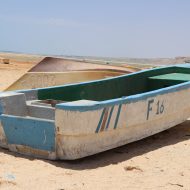
 Somalia
Somalia
Somalia, located in the Horn of Africa, is the second poorest country in the world. Decades of conflict and instability have left the country in a state of extreme poverty.
The challenges facing the people of Somalia are immense and multifaceted. Access to primary necessities such as clean water, healthcare, and education is severely limited in Somalia. Millions of people are in need of humanitarian assistance, whereas over 3 million children are out of school. Moreover, frequent droughts and famines have left many Somalis without enough food to survive.
The cost of living in Somalia is also very inconvenient, with inflation rates rarely ever falling, which makes necessities, such as food and shelter, unaffordable for many. The lack of economic opportunities and rampant corruption continue to contribute to the country’s poverty.
The ongoing conflict in Somalia is another major factor that worsens the said conditions. Al-Shabaab, an Islamic extremist group, has been responsible for numerous terrorist attacks and continues to control large areas of the country, which has made it difficult for humanitarian organizations to operate in the country and has led to the displacement of millions of people

 Burundi
Burundi
Burundi, a small landlocked country in East Africa, is officially the poorest country in the world. Despite being rich in natural resources such as nickel, gold, and uranium, Burundi's people live in dire poverty
The challenges the people of Burundi face are numerous and overwhelming. One of the most pressing issues is the lack of access to basic necessities such as clean water, healthcare, and education. According to UNICEF, around 38% of the population has access to safe drinking water, and the literacy rate is approximately 74%.
The cost of living in Burundi is also extremely high, with food and other essentials being out of reach for many. This is due in part to the country’s landlocked geography, which makes importing goods more expensive. Additionally, Burundi has faced political instability, ethnic conflict, and corruption, which have all contributed to the country’s poverty.
Despite these challenges, the people of Burundi are resilient and determined. They have created innovative ways to survive, such as using bicycle-powered generators for electricity and cultivating small plots of land for food. The country has made some progress in recent years, such as improvements in access to healthcare and reductions in infant mortality rates.
Burundi’s poverty is a complex issue that cannot be solved effortlessly. However, by addressing the lack of access to basic necessities and tackling issues of corruption and conflict, there is hope for a brighter future for the people of Burundi.
Factors Leading Up to Poverty in a Country
- Lack of education and job opportunities
- Inadequate access to basic necessities such as clean water, food, and healthcare
- Political instability and conflict
- Widespread corruption and inefficient governance
- Unequal distribution of resources and wealth
- Poor infrastructure and limited access to markets
- Dependence on foreign aid and loans
- Climate and environmental factors
- Economic policies that favor the wealthy over the poor
- Discrimination based on gender, race, ethnicity, or other social factors
- Limited social safety nets and support systems for the most vulnerable populations.
Cases Where Countries Got Over Poverty
1# Ghana‘s poverty rate in 1990 was 52% with a GDP per capita of $1,900. By 2018, poverty rates were reduced to 21%, and GDP rose to $4,211.85 due to the country’s focus on education, industrialization, and diversifying its economy. This improvement created more job opportunities and boosted sectors such as manufacturing and mining, making Ghana one of the top gold producers worldwide. Extreme poverty decreased from 35.6% to 18.2%.
2# South Korea‘s economy struggled immensely after the Japanese occupation and the Korean War, relying mainly on agriculture in the 1950s. General Park Chung-hee’s five-year plan in 1962 focused on industrialization, which created jobs and boosted companies such as Hyundai, Samsung, and LG with economic incentives like tax breaks. South Korea also received US aid in exchange for military presence. These efforts paid off, with South Korea’s GDP per capita now at nearly $30,000, and $56 billion of US exports from the country.
3# Singapore, a city-state that gained independence from Malaysia in 1965, started with a GDP per capita of $516 and over 70% of the population living in slums. Lee Kuan Yew, the prime minister at the time, introduced successful reforms to improve education, attract foreign investment through low taxes, and develop shipping and manufacturing businesses. The influx of money helped improve infrastructure and housing, leading to a boost in the standard of living. Singapore now has a GDP per capita of $57,714.30, reflecting its escape from poverty.
Richest Countries in the World
|
Rank |
Country/Territory |
GDP per Capita (US$) |
|
1 |
Monaco |
234,317 |
|
2 |
Liechtenstein |
169,260 |
|
3 |
Luxembourg |
133,175 |
|
4 |
Bermuda |
112,653 |
|
5 |
Ireland |
101,109 |
|
6 |
Switzerland |
93,525 |
|
7 |
Norway |
89,242 |
|
UK Territory |
Cayman Islands |
85,250 |
|
8 |
United States |
69,185 |
|
9 |
Iceland |
69,133 |
|
10 |
Denmark |
68,037 |